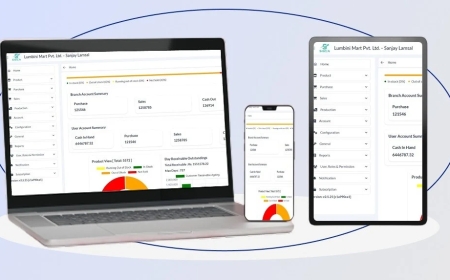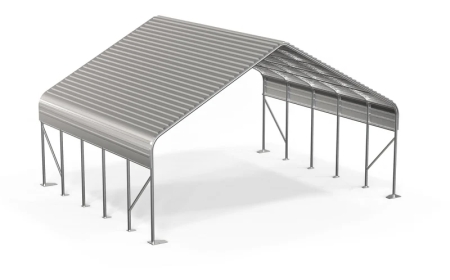Non-Alcoholic Wines | The Elegant Alternative to Traditional Wines
Non-alcoholic wines are not just glorified grape juices. They are wines made using traditional winemaking techniques, including fermentation and aging.

In a world where wellness, inclusivity, and mindful consumption are becoming central to lifestyle choices, non-alcoholic wines have carved out a unique and sophisticated niche. These wines deliver the look, taste, aroma, and elegance of traditional wineswithout the alcohol. From health-conscious consumers and sober-curious millennials to pregnant women and those with religious constraints, non-alcoholic wines appeal to a wide spectrum of people who want to enjoy the social ritual of wine drinking without compromising on health or personal values.
Lets explore the rise of non-alcoholic wines in depth, including how theyre made, their benefits, the types available, top brands in the market, and why they are revolutionizing the global wine industry.
The Growing Popularity of Non-Alcoholic Wines
Gone are the days when choosing not to drink alcohol meant sipping on soda or plain juice while everyone else enjoyed a complex glass of wine. Today, non-alcoholic wines are making their way into fine-dining restaurants, high-end grocery stores, wellness retreats, and even celebratory events like weddings and business galas. The growing global demand is driven by an increasing awareness of alcohols health risks, the desire to stay clear-headed, and the pursuit of balance between indulgence and well-being.
According to market trends, the alcohol-free beverage sectorincluding winesis expected to surpass $10 billion globally within the next few years. This explosive growth reflects how non-alcoholic options are no longer seen as secondary choices but as premium lifestyle products.
What Are Non-Alcoholic Wines?
Non-alcoholic wines are not just glorified grape juices. They are wines made using traditional winemaking techniques, including fermentation and aging, but are then dealcoholized, meaning the alcohol content is removed after production. Most non-alcoholic wines contain less than 0.5% alcohol by volume (ABV), which is the legal threshold in many countries to be labeled as non-alcoholic.
Unlike simple grape juice, which is unfermented and sweet, non-alcoholic wine offers the acidity, tannins, body, and complexity that true wine lovers appreciate. This makes it suitable for food pairings, toasts, and even gourmet recipes.
How Are Non-Alcoholic Wines Made?
The process of making non-alcoholic wine begins like any other wine:
Grapes are harvestedcommonly used varieties include Merlot, Chardonnay, Cabernet Sauvignon, and Riesling.
Crushing and fermentation follow, during which sugars are converted into alcohol by yeast.
Aging and maturation allow the wine to develop depth and character.
After the wine has matured, alcohol is carefully removed using one of the following methods:
Vacuum Distillation
The wine is heated at a lower boiling point under reduced pressure, causing the alcohol to evaporate while preserving delicate aromas.
Reverse Osmosis
A filtration system separates alcohol from water and flavor compounds. The alcohol is removed, and the remaining wine essence is blended back with water to create a full-flavored product.
Spinning Cone Technology
This uses centrifugal force and low heat to separate and remove the alcohol while preserving essential wine aromas.
The goal is always the same: to maintain the essence of real wine without the alcohol, offering a true wine experience for everyone.
Health and Lifestyle Benefits of Non-Alcoholic Wines
One of the most compelling reasons people choose non-alcoholic wine is its numerous health and lifestyle advantages:
Low in Calories and Sugar
Since alcohol contributes significantly to the calorie content of traditional wine, removing it results in a lighter, waistline-friendly beverage. Many alcohol-free wines also have reduced sugar compared to soft drinks or juices.
Safe for Everyone
Pregnant women, designated drivers, individuals on medication, and those in recovery can all enjoy non-alcoholic wines without worry. Its also ideal for people from cultures or religions that prohibit alcohol consumption.
Heart-Healthy Antioxidants
Red winesboth alcoholic and non-alcoholiccontain resveratrol, an antioxidant found in grape skins, which is linked to improved heart health. Studies suggest non-alcoholic red wine may help lower blood pressure and reduce the risk of heart disease without the negative effects of alcohol.
No Hangover or Impairment
Enjoying a bottle of non-alcoholic wine wont leave you with a headache, dehydration, or mental fog. This makes it perfect for weekday dinners, lunch meetings, or early-morning routines.
Encourages Responsible Drinking Culture
Non-alcoholic wines help promote a more inclusive and responsible drinking environment, whether at weddings, corporate events, or family gatherings.
Types of Non-Alcoholic Wines
Just like traditional wines, non-alcoholic wines come in a variety of styles to suit different occasions, palates, and pairings.
Red Non-Alcoholic Wine
Full-bodied and rich, with notes of blackberries, plums, and spices. Great with steaks, pasta, and cheese boards. Common varietals include Merlot, Cabernet Sauvignon, and Shiraz.
White Non-Alcoholic Wine
Light and crisp with citrusy or floral undertones. Perfect for seafood, salads, and light meals. Chardonnay and Sauvignon Blanc are among the most popular.
Ros Non-Alcoholic Wine
Fruity, refreshing, and perfect for warm weather. Non-alcoholic ros wines are ideal for brunches, picnics, and charcuterie spreads.
Sparkling Non-Alcoholic Wine
These offer the fizz and festivity of Champagne or Prosecco, making them perfect for toasts, New Years Eve, weddings, or baby showers.
Top Non-Alcoholic Wine Brands to Try
The quality of alcohol-free wines has greatly improved over the past decade. Here are some of the most recommended global brands:
-
Leitz Eins Zwei Zero (Germany) Offers a range of premium reds, whites, and sparkling wines with crisp flavor profiles.
-
Thomson & Scott Noughty (UK) Known for its organic, vegan, and low-sugar sparkling wines.
-
Sutter Home Fre (USA) Affordable and widely available with a variety of options.
-
Lussory (Spain) Halal-certified wines with elegant packaging and authentic taste.
-
Pierre Chavin Zra (France) Specializes in 0.0% alcohol, organic, and vegan options.
These brands are now available in non-alcoholic shops, health food stores, and online retailers catering to a global audience.
How to Enjoy Non-Alcoholic Wine Like a Connoisseur
To make the most of your alcohol-free wine experience, treat it just like traditional wine:
-
Use the right glassware: Let the wine breathe and develop aroma in proper glasses.
-
Serve at the correct temperature: Chill whites and ross, slightly chill reds, and keep sparklers very cold.
-
Pair with complementary foods: Non-alcoholic wines pair just as beautifully with meals.
-
Store properly: Keep unopened bottles in a cool, dark place. Once opened, refrigerate and consume within 35 days.
You can also use non-alcoholic wines in mocktails, sangrias, or even cooking recipes like risotto or coq au vin for rich flavors without the alcohol content.
Conclusion
Non-alcoholic wines offer the best of both worldstaste and responsibility. With an ever-growing variety of styles, regions, and brands, these alcohol-free options have become a staple in modern homes, restaurants, and celebrations.
Whether youre cutting back on alcohol for health reasons, living a sober lifestyle, or simply curious about mindful alternatives, non-alcoholic wine provides a delicious, elegant way to stay included in the toasts, meals, and memories of life.


























